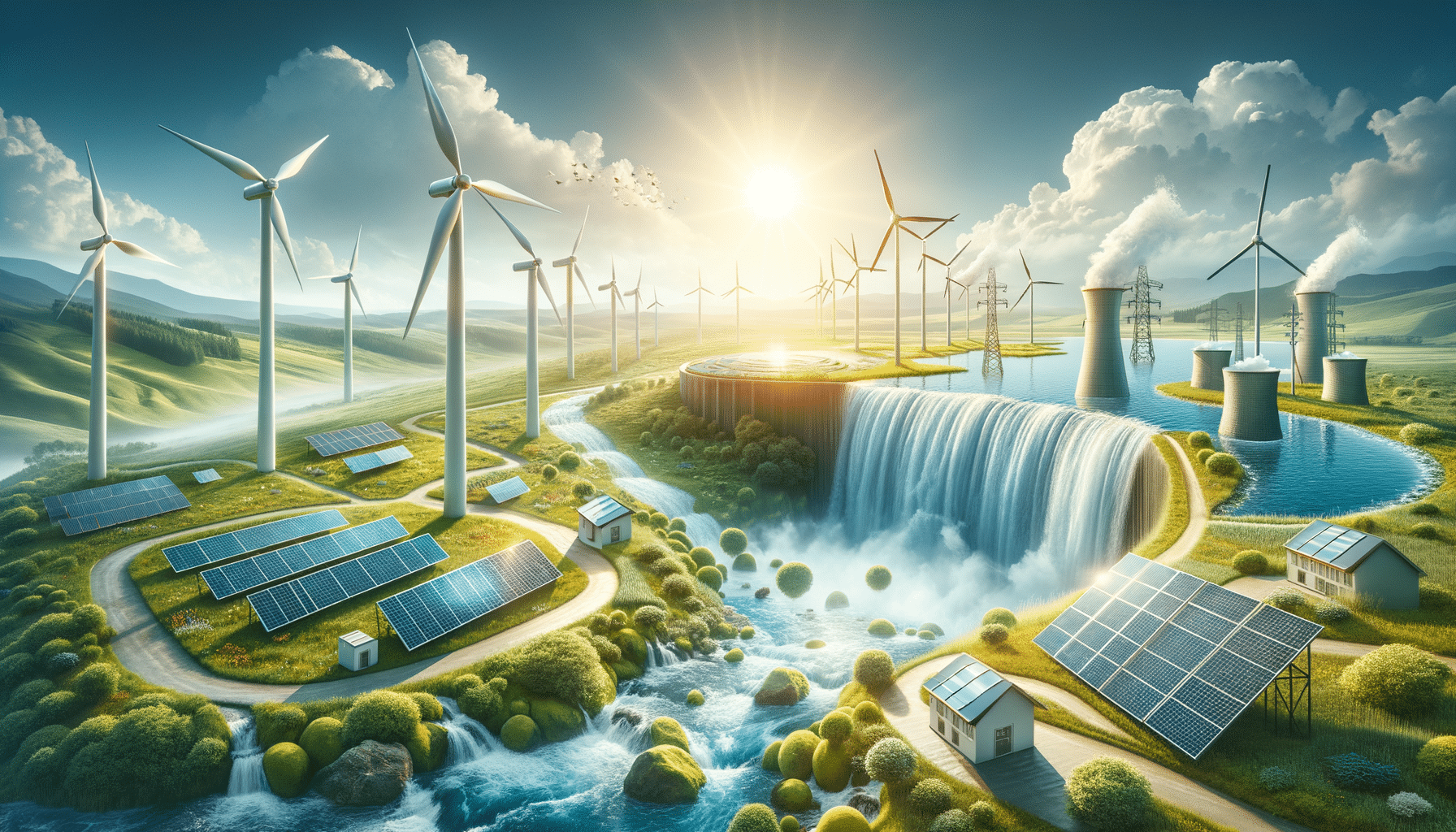
Exploring the Benefits of Renewable Energy Generators
Introduction to Renewable Energy Generators
In an era where environmental consciousness is more critical than ever, renewable energy generators have emerged as a beacon of hope for sustainable living. These generators harness natural resources like sunlight, wind, and water to produce electricity, offering a cleaner alternative to fossil fuels. As the demand for sustainable energy grows, renewable energy generators have become an attractive option for homes and businesses. They not only provide a way to reduce carbon emissions but also offer the potential for energy independence and cost savings.
The importance of renewable energy generators lies in their ability to mitigate the adverse effects of climate change. By reducing reliance on fossil fuels, they help decrease greenhouse gas emissions, which are a significant contributor to global warming. Additionally, renewable energy sources are abundant and, in many cases, inexhaustible, making them a reliable solution for long-term energy needs. Whether you’re interested in solar, wind, or other renewable sources, this article discusses the advantages of renewable energy generators and how they can reduce your carbon footprint.
Types of Renewable Energy Generators
Renewable energy generators come in various forms, each utilizing different natural resources to produce electricity. Among the most common types are solar panels, wind turbines, and hydroelectric generators. Solar panels convert sunlight into electricity using photovoltaic cells, making them an excellent choice for sunny regions. Wind turbines, on the other hand, harness the power of wind to generate energy, suitable for areas with consistent wind patterns. Hydroelectric generators use flowing water to produce electricity, often through dams or watermills, making them ideal for regions with abundant water resources.
Each type of renewable energy generator has its unique advantages and challenges. Solar panels, for example, are easy to install and require minimal maintenance, but their efficiency can be affected by weather conditions and the time of day. Wind turbines are highly efficient and can generate significant amounts of electricity, but they require large open spaces and can be impacted by changes in wind speed. Hydroelectric generators provide a stable and continuous power supply but can have significant environmental impacts on aquatic ecosystems.
Despite these challenges, the versatility and adaptability of renewable energy generators make them a viable option for diverse environments and energy needs. By understanding the different types and their applications, individuals and businesses can make informed decisions about integrating renewable energy into their energy strategies.
Benefits of Implementing Renewable Energy Generators
Implementing renewable energy generators offers a multitude of benefits that extend beyond environmental sustainability. One of the most significant advantages is the reduction in energy costs. While the initial investment for renewable energy systems can be high, the long-term savings on electricity bills often outweigh the upfront costs. Many regions also offer incentives and tax credits to encourage the adoption of renewable energy, further enhancing the financial appeal.
Another crucial benefit is energy independence. By generating their own electricity, homes and businesses can reduce their reliance on external power sources, protecting themselves from fluctuating energy prices and supply disruptions. This independence also contributes to energy security, as it reduces the vulnerability to geopolitical conflicts that can impact energy supplies.
Moreover, renewable energy generators contribute to job creation and economic growth. The renewable energy sector is rapidly expanding, creating numerous opportunities in manufacturing, installation, and maintenance. This growth not only supports local economies but also fosters innovation and technological advancements in the energy industry.
Overall, the benefits of renewable energy generators are multifaceted, making them an attractive option for those seeking to enhance sustainability, reduce costs, and promote economic development.
Challenges and Considerations
While renewable energy generators offer numerous benefits, there are also challenges and considerations that must be addressed. One of the primary challenges is the initial cost of installation. Renewable energy systems can require significant upfront investment, which can be a barrier for some individuals and businesses. However, as technology advances and production scales up, these costs are gradually decreasing, making renewable energy more accessible.
Another consideration is the variability of renewable energy sources. Solar and wind energy, in particular, are dependent on weather conditions, which can lead to fluctuations in energy production. This intermittency requires the development of efficient energy storage solutions and grid management systems to ensure a stable power supply.
Additionally, the environmental impact of renewable energy infrastructure must be carefully managed. While renewable energy is generally more environmentally friendly than fossil fuels, the construction and operation of renewable energy facilities can disrupt local ecosystems and wildlife. Careful planning and environmental assessments are essential to minimize these impacts.
Despite these challenges, the continued investment in research and development is driving improvements in technology and infrastructure, paving the way for more efficient and sustainable renewable energy solutions.
Future Prospects of Renewable Energy Generators
The future of renewable energy generators is promising, with ongoing advancements in technology and increased global commitment to sustainability. As countries strive to meet climate goals and reduce carbon emissions, the demand for renewable energy is expected to grow significantly. Innovations in energy storage, such as advanced batteries and grid management systems, are enhancing the reliability and efficiency of renewable energy systems.
Moreover, the integration of digital technologies and smart grids is revolutionizing the way energy is produced and consumed. These technologies enable better monitoring and management of energy resources, optimizing the performance of renewable energy generators and reducing waste.
Government policies and international agreements are also playing a crucial role in promoting the adoption of renewable energy. By setting ambitious targets and providing financial incentives, policymakers are encouraging the transition to a cleaner and more sustainable energy future.
In conclusion, renewable energy generators represent a vital component of the global effort to combat climate change and promote sustainable development. With continued innovation and support, they have the potential to transform the energy landscape and create a more resilient and sustainable world.